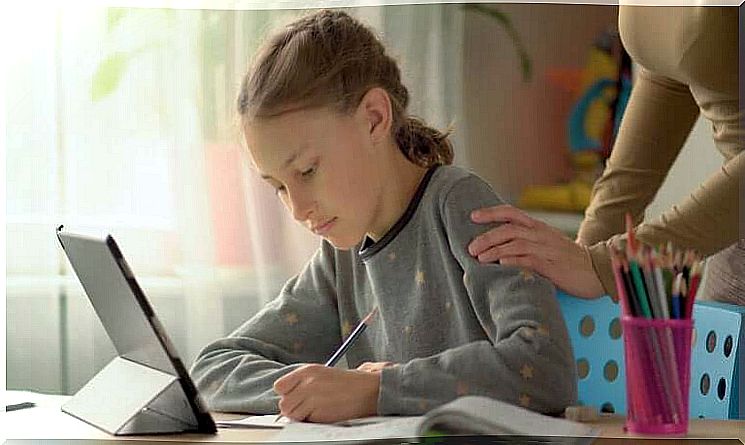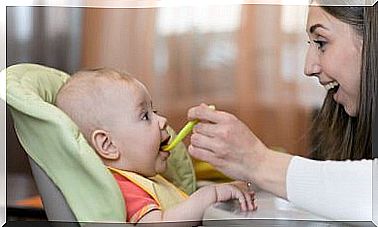Why Are Children Struggling While Others Don’t

There are children who struggle while others do not, and certainly many of us have been through this situation in which one of our children struggles and perseveres to achieve something, while the other refuses even to try, even though both have been brought up in the same way and with the same values. Because? We’ll see in this article.
There are children who, from an early age, are very independent and want to do things on their own, striving to achieve something, while others are more dependent and follow the law of minimum effort. The latter, if they fail at something, do not try again. We will see what can cause this difference between two children who, even though they were raised with the same values, are different.
Why are there children who struggle while others don’t?
Psychologist Carol Dweck has worked for many years in research on the issue of effort, perseverance and motivation in children. Through these studies, she came to the conclusion that there are two types of mentality according to the child’s attitude towards effort:

- Fixed mindset ( fixed ) : are those children who have a closed mind and think their skills or abilities depend on the intelligence and, above all, it is impossible to change. They think that if they’re not good at something, it’s because they weren’t born for it and, consequently, they don’t make the effort.
- Open mind or growth ( growth ) : are those who think that what we do not currently know will know in the future and that its success will depend on issues such as effort, perseverance and work.
To better understand these two types of mindsets, let’s take an example. A child who is learning to write, trying to write a word once or twice without succeeding, stops trying because he thinks he is not good at it, period, that is, that he is not capable of it. However, another child who thinks he has the ability to write well will try hard, trying as many times as necessary before he can.
Characteristics of children who have a fixed mindset
- They avoid challenges that they think they will not be able to overcome.
- They don’t believe they can achieve something they want through effort.
- They consider that any mistake equals failure and, therefore, they cannot learn from their mistakes.
- In the face of constructive advice or criticism, they become defensive.
Characteristics of open-minded children
- For this type of child, effort is related to the learning process, so they think that effort will allow them to improve any of their skills or abilities.
- They assume the challenges that arise as something necessary and don’t run away from them. These children face them and strive to overcome them. They are resilient people.
- They understand that mistakes are part of learning and that failures are opportunities to continue learning.
- They accept any advice and constructive criticism as this is considered a beneficial contribution to their learning.
Children who make an effort while others don’t, according to the praise they receive
Now we can ask ourselves why there are children who think they can achieve what they want through effort while others cannot. According to Carol Dweck’s research, this is due to the type of praise children receive from family, parents, friends, etc. Thus, we can talk about two types of praise:
- The praise addressed to intelligence or ability of the child : “As you are smart; You are a math genius; You do well in everything…”.
- Praise referring to the child’s effort : “Nice try, you almost made it; You can do it, just try; You can do it; With your effort, you have already achieved what you set out to do…”.
So that this could be proven, Dweck analyzed children from 14 months to 8 years. Those who received praise for their efforts showed interest and struggled with the challenges proposed, while those who received praise for their abilities showed little interest in facing the challenges.

Without realizing it, are we praising our children in different ways?
We can examine our consciences and wonder if we praise each of our children in different ways to get an answer on the subject. There is always time to fix what we are not doing well.
So, start swapping phrases like “Let me do it now” with “Try it yourself, see how you do.” Or “See how good you are at this?” by “Your effort rewarded you and you got what you wanted, very well”. Every brain is capable of molding itself and changing if it receives the necessary praise to change its attitude towards the effort and its way of looking at life.
Now you’ve seen why there can be children who struggle while others don’t. It is important to observe ourselves and understand the messages we send to our children through our sentences. All parents want to encourage their children to be successful people in the future, but sometimes this is done wrongly.
Remember, it’s never too late to change something we’re not doing well by accident. Change praise for your child’s abilities or abilities to praise for your child’s effort, perseverance, and motivation to achieve what she sets out to do.









